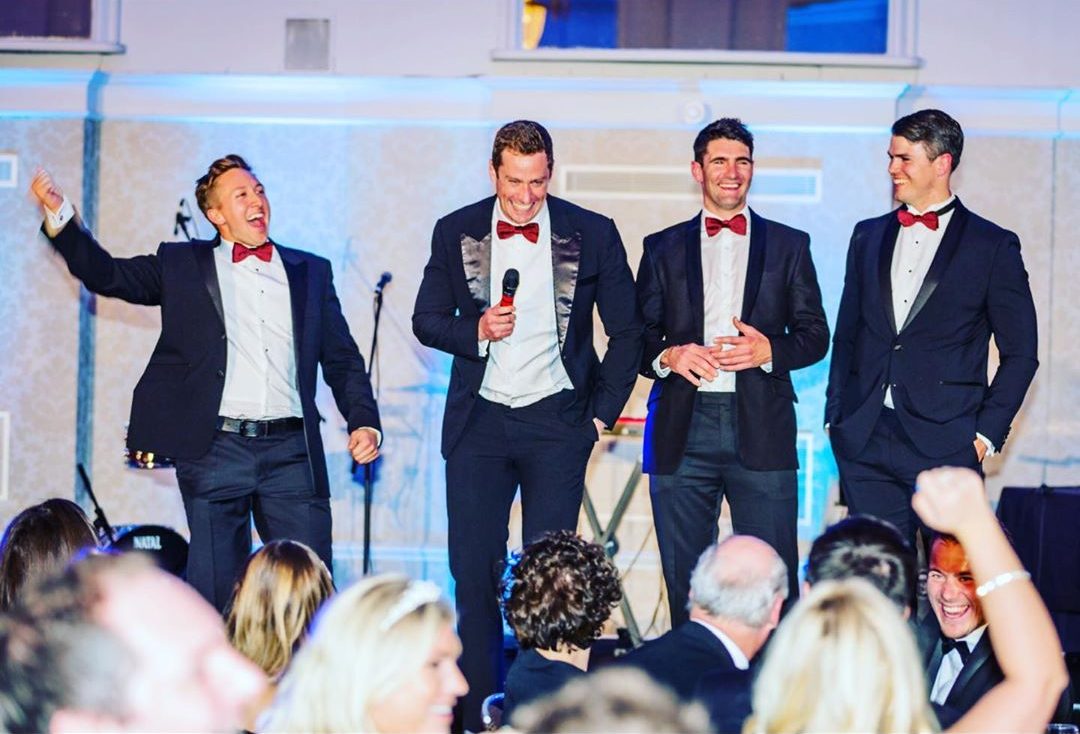Four OCs win world’s toughest ocean rowing race
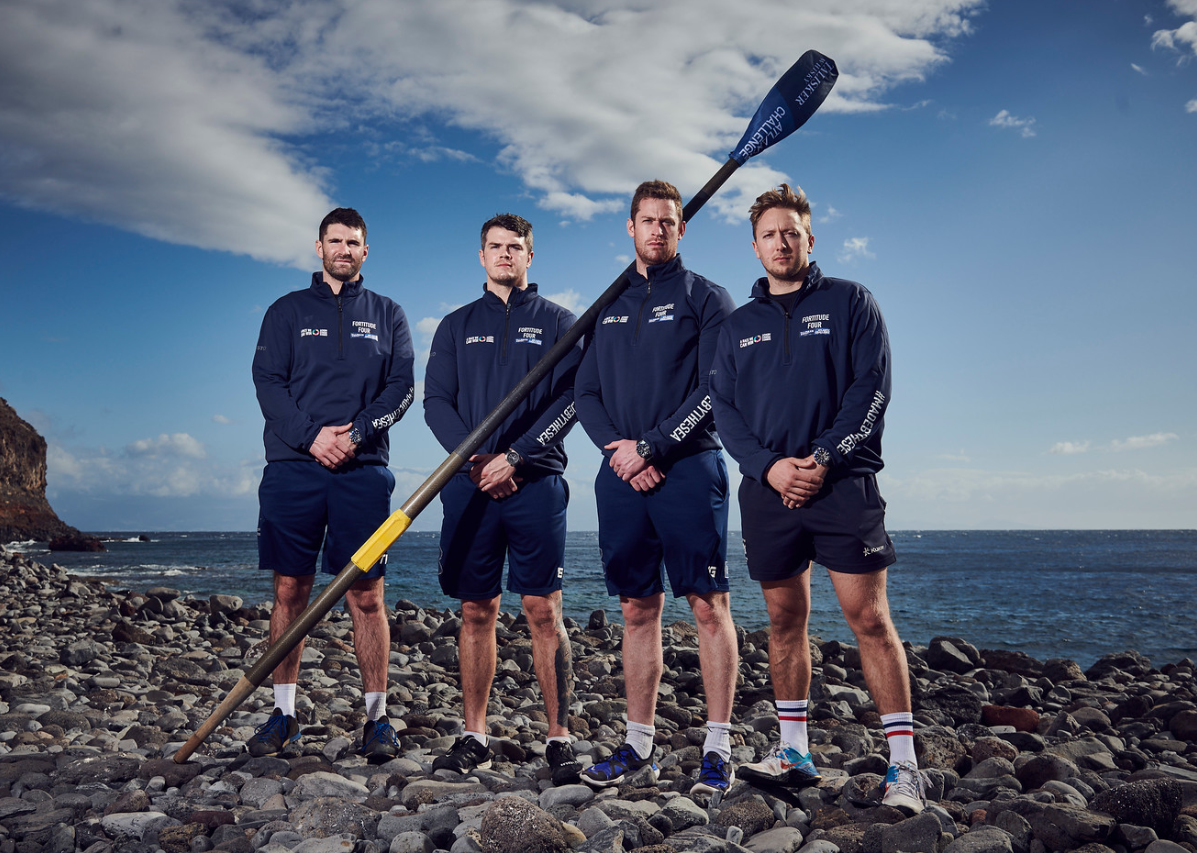
Four Old Cliftonians recently undertook the challenge of a lifetime. The four men (Ollie and Tom, who attended South Town, Max, who attended East Town, and Hugh, who attended North Town during his Prep School years) took part in the world’s toughest rowing race – the Talisker Whisky Atlantic Challenge.
This 3,000-mile gruelling race saw the team battle with the harshest Atlantic elements, endure physical and emotional barriers, and overcome all the harsh realities that an unsupported race can throw at you. However, with a strong team dynamic Ollie, Tom, Max and Hugh pushed through and completed the La Gomera to Antigua route in the winning time of 32 days, 12 hours and 35 minutes.
We spoke to the boys to find out more about their epic journey…
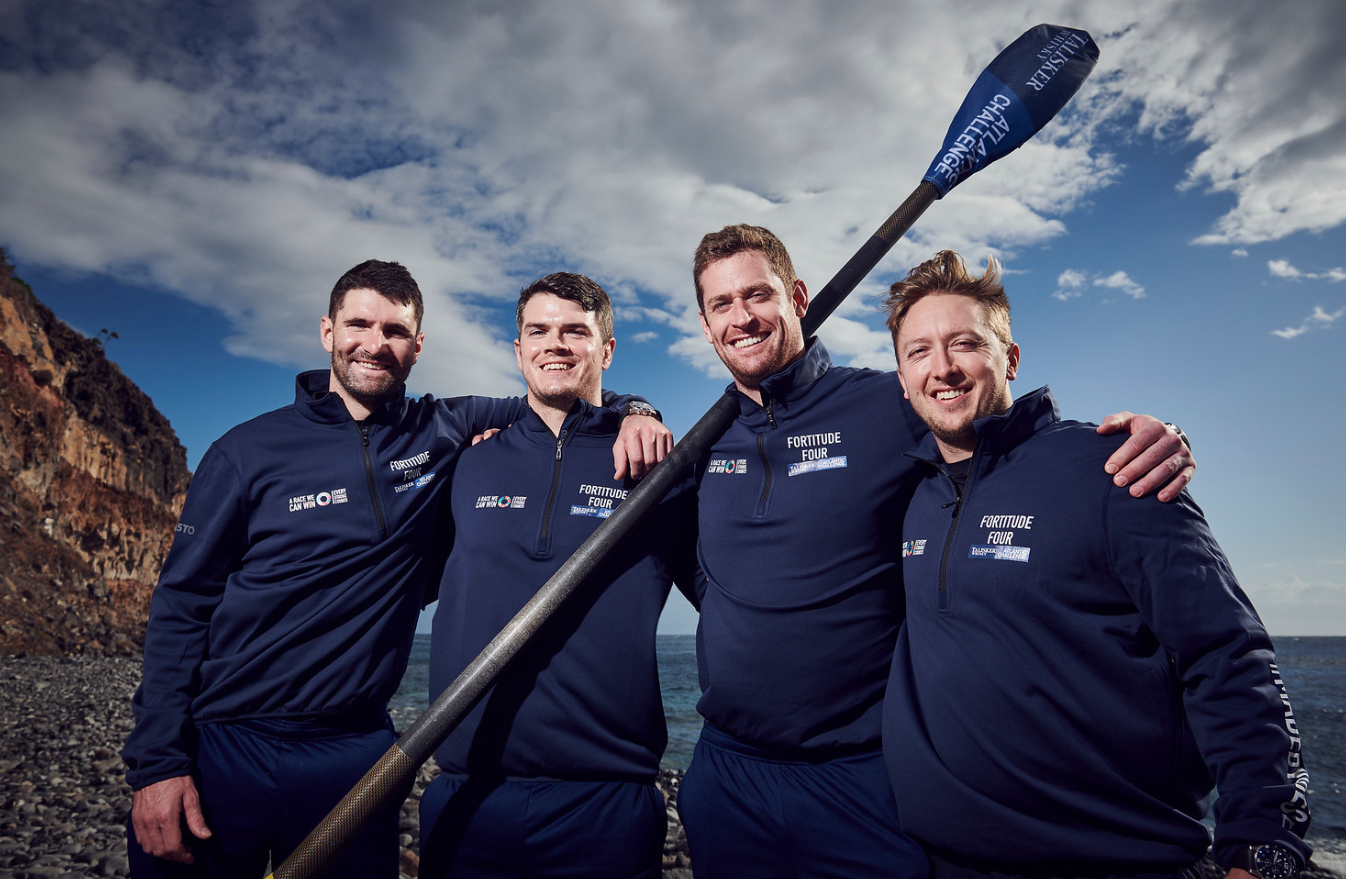
Q: Being military and sporty men you must have already had a strong level of fitness, but how did you push yourselves to prepare for your journey across the Atlantic?
A: We spent a lot of time at sea, along the south coast, training in our rowing boat. We kept the boat in Poole and spent 10 weekends at sea preparing for the race. Some of these training sessions were in high winds and rough seas which prepared us well for the Atlantic crossing, as we experienced sea sickness, fatigue and tough rowing conditions.
We also spent a lot of time in the gym improving strength and flexibility, along with time on the rowing machine building up endurance.
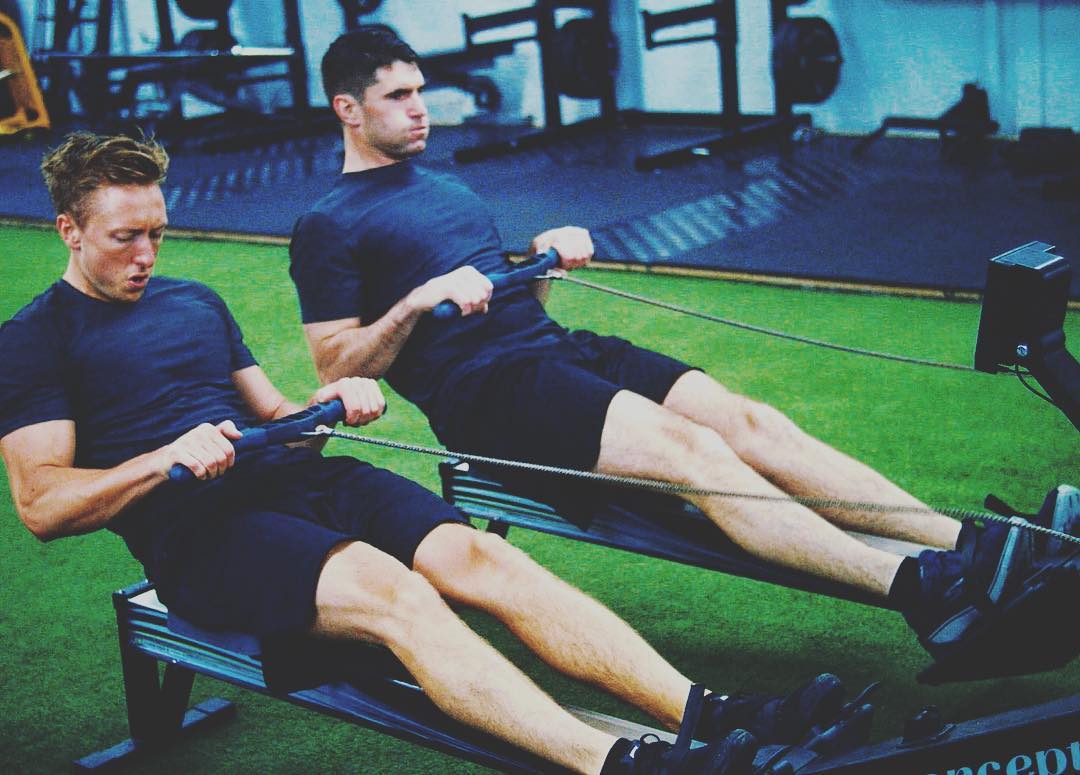 Q: You took the fastest ocean rowing boat in the world, the Rannoch R45 – it looked fantastic on the outside, but how did you find living in the small quarters below deck?
Q: You took the fastest ocean rowing boat in the world, the Rannoch R45 – it looked fantastic on the outside, but how did you find living in the small quarters below deck?
A: The living conditions are small and cramped. The cabins get extremely hot during the heat of the day and can get very cold overnight so it is a challenging living environment. The cabins are also very noisy as you can hear the waves crashing on the side of the boat. The stern cabin is especially noisy as it houses the autopilot and all the navigation and communication equipment.
Living and working in a tiny space (eight square meters) for over a month with four big blokes (with strong personalities!) was challenging. We spent a lot of time working on the team dynamic to ensure we completed the race as friends and worked well together throughout.
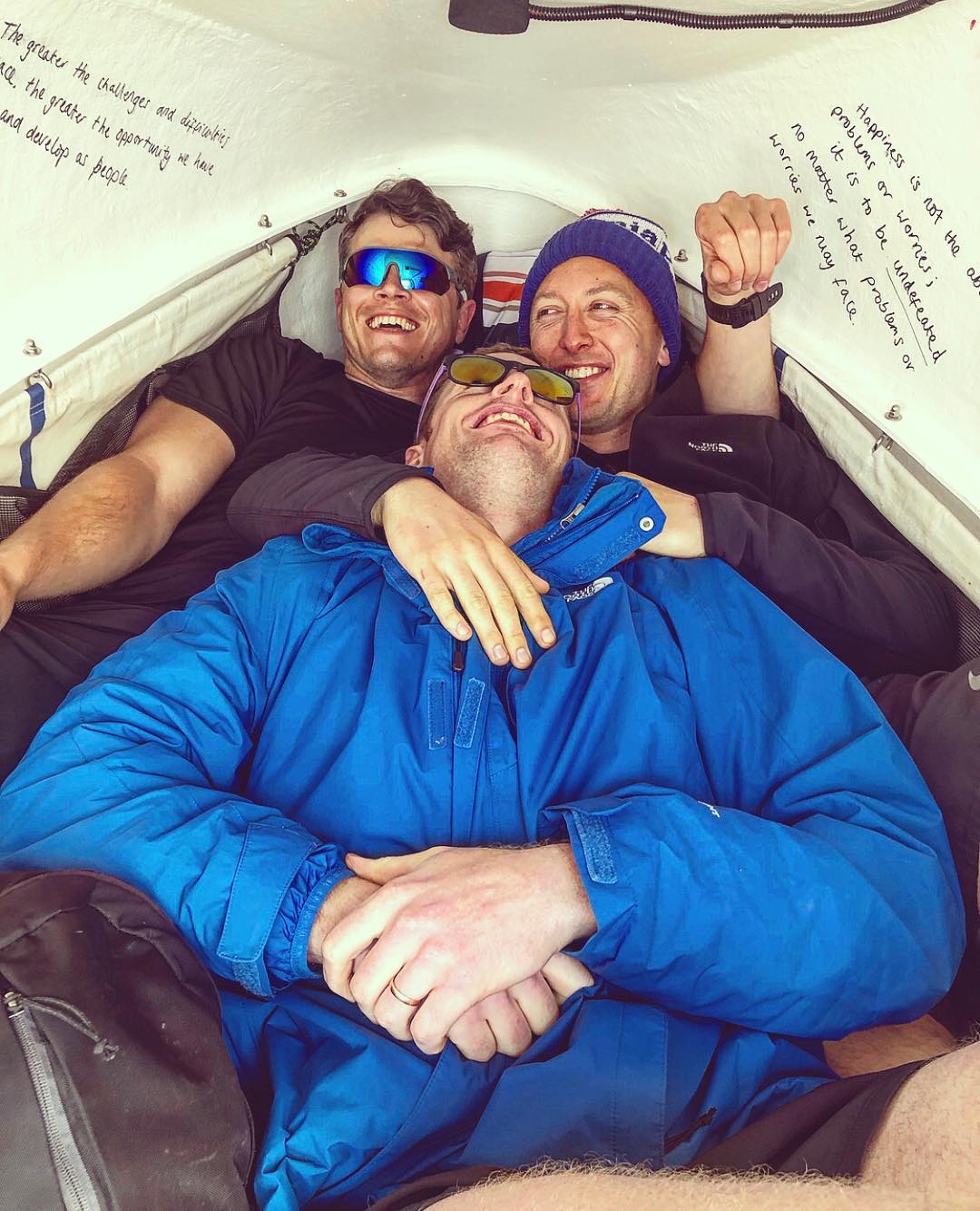 Q: Did you name your boat? If so, what did you call it?
Q: Did you name your boat? If so, what did you call it?
A: It was called Ben the Boat. The charity we were supporting (West London Zone) ran a competition at a school it supports and the children suggested a list of names for us to choose. We loved Ben the Boat! It was named by a girl called Jazzy, aged 7.
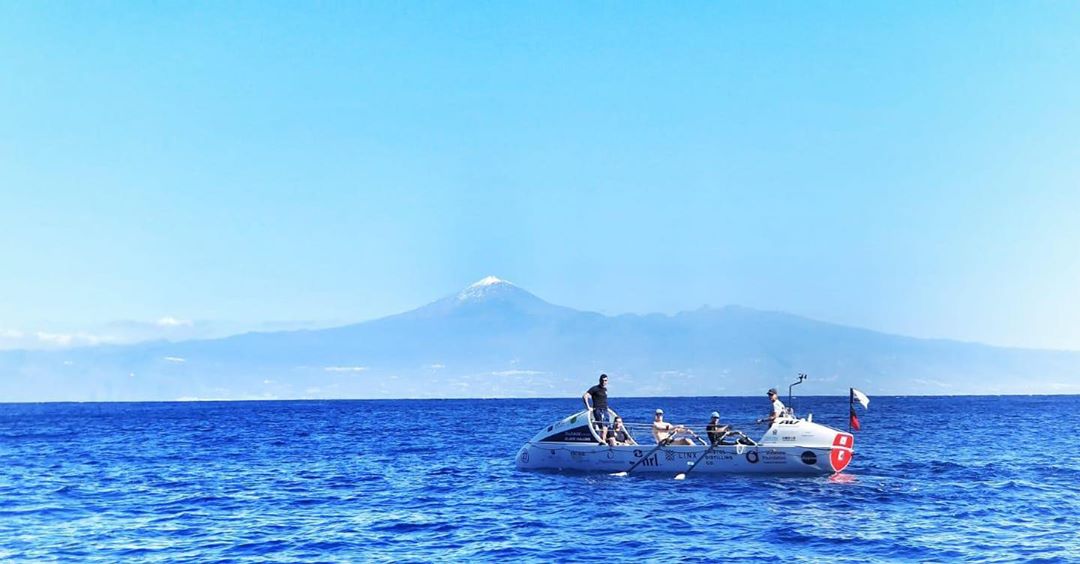 Q: Though you were the quickest team to successfully complete the row, 32 days, 12 hours and 35 minutes is a long time to spend at sea. How did you overcome the mental and physical barriers along your journey?
Q: Though you were the quickest team to successfully complete the row, 32 days, 12 hours and 35 minutes is a long time to spend at sea. How did you overcome the mental and physical barriers along your journey?
A: We spent time before the race to mentally prepare as we knew it was such an important factor. We broke down the race into 12-hour sections and worked to move the boat as quickly as possible to cover the greatest distance over these 12-hour periods. We had some key milestones including Christmas, New Year and two team members had birthdays on board.
We celebrated these occasions (whilst still rowing hard) which helped break down the time at sea. We also listened to lots of podcasts and story books! Physically we tried to look after our bodies by having good technique on the oars and stretching and resting well between shifts.
 Q: What did you eat during your journey and did you keep all of your food on board?
Q: What did you eat during your journey and did you keep all of your food on board?
A: We kept all our food on board, the race is fully unsupported so you have to take all supplies with you. We tried to eat 6,000 calories per person each day. Half of this was made up from snacks – nuts, dried fruit, peanut butter bars, chocolate, dried meats and seeds.
The other half came from pre-cooked dehydrated meals, these are individually vacuum packed meals that you just add water to and they are ready to eat (this is the same as space food!).
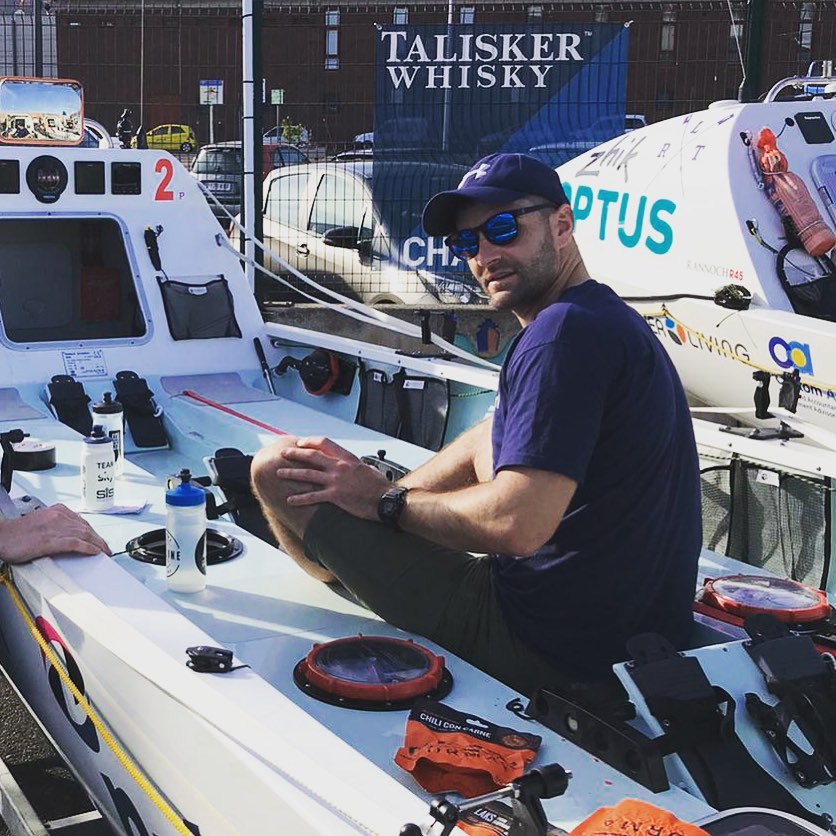
Q: Were there any scary moments on your journey, if so what was the scariest?
A: Yes! During the last three days of the race we were in the middle of a tropical storm. The wind was over 30mph and there were 12-meter waves. The boat capsized twice with team members getting thrown out of the boat on both occasions, luckily we were always clipped onto the boat so were able to climb back on board.
During the first capsize, Tom was stepping out of the cabin and the door was open when the boat went over. This resulted in the stern cabin filling with water and the loss of some equipment overboard.
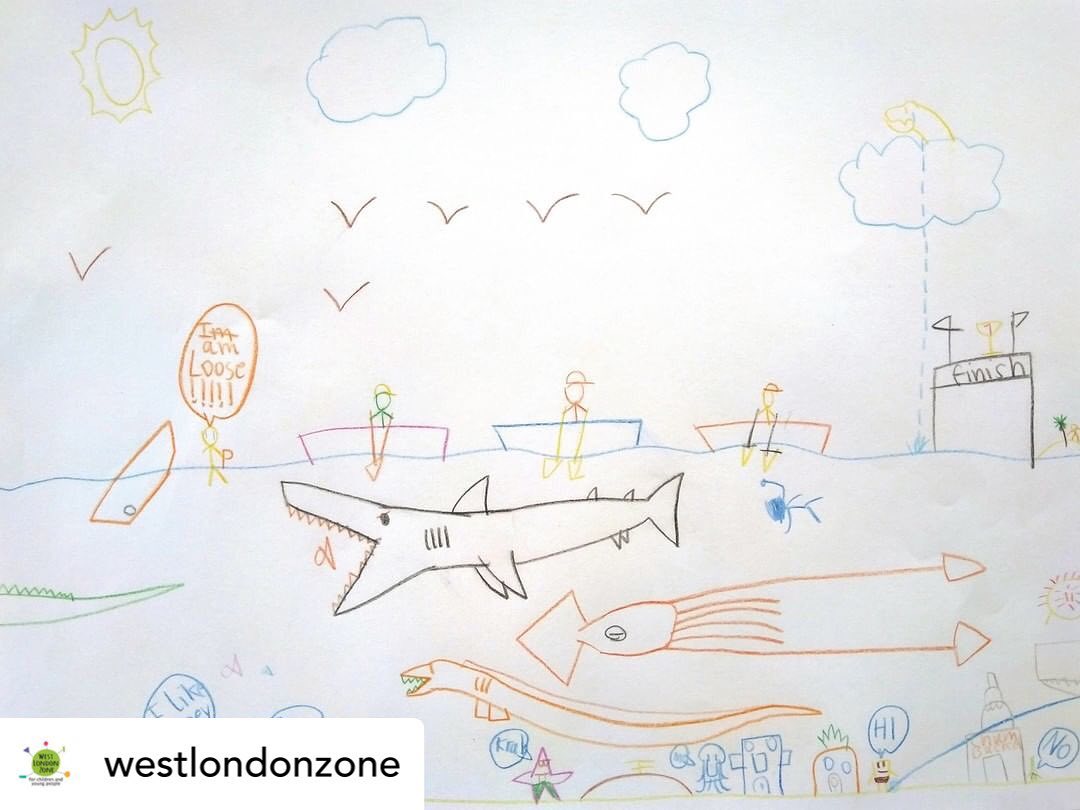 Q: Were there any funny moments from your journey that you’ll look back on and smile at in years to come?
Q: Were there any funny moments from your journey that you’ll look back on and smile at in years to come?
A: Plenty – we were all hit on numerous occasions by flying fish which was amusing. Ollie really didn’t like touching them so there was always a drama on deck when a flying fish was in the boat near him. Tom was hit in the face by a flying fish in the middle of the night which made a loud slap! It was a pitch black night so was completely out of the blue, the other team members found this especially funny.
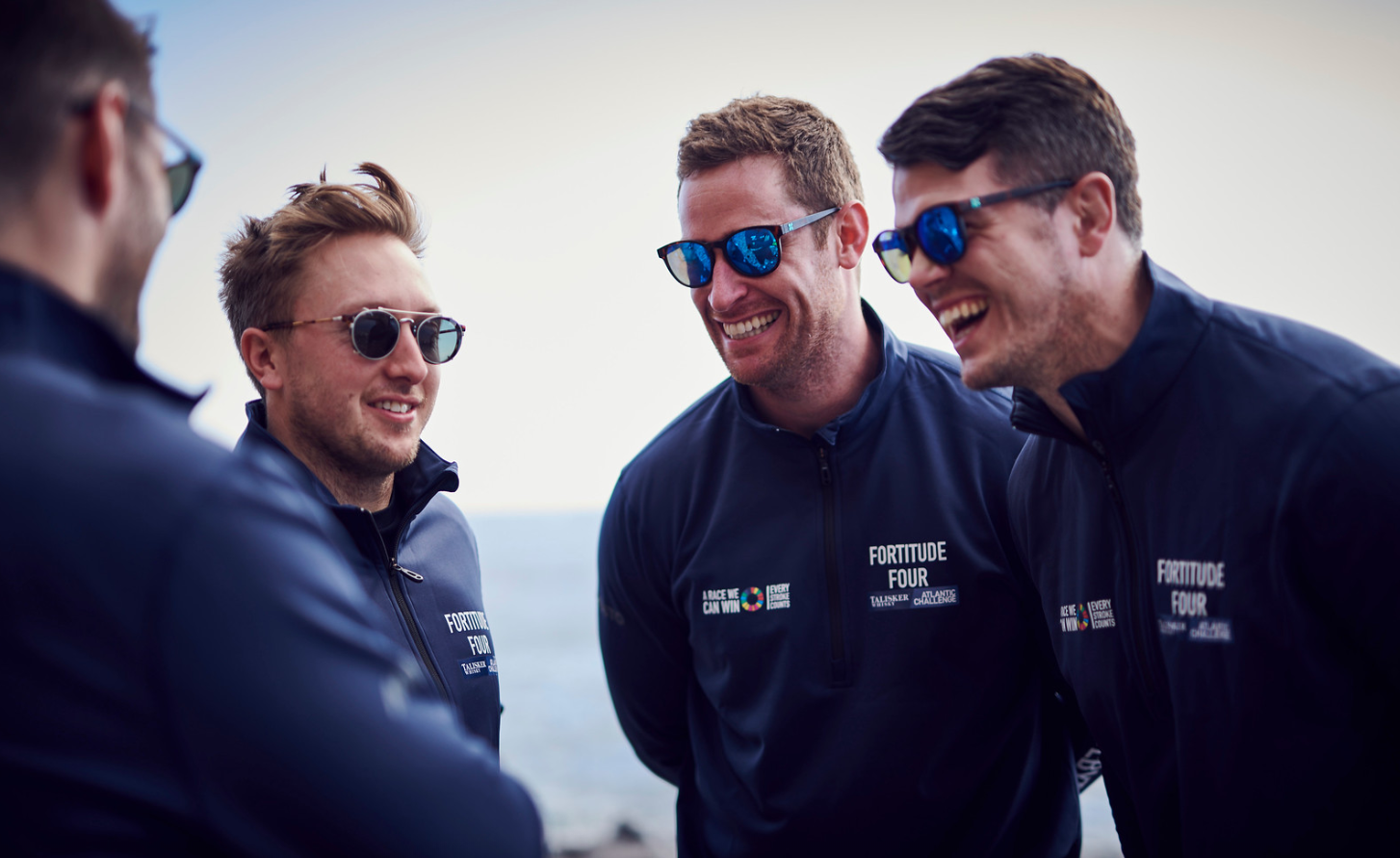 Q: How much of the £250,000 target did you raise for your chosen charity West London Zone and can we still donate?
Q: How much of the £250,000 target did you raise for your chosen charity West London Zone and can we still donate?
A: We have raised around £220,000, once the boat sale is taken into account, so we are nearly there. You can still donate through our website.
Q: Why did you choose West London Zone as your charity?
A: West London Zone are a great charity that help disadvantaged children in an area of the UK with the highest inequality. We have become quite involved with the charity and have been going into schools talking to children about the race and the values we are trying to promote – hard work, dedication, team work and stepping outside our comfort zones.
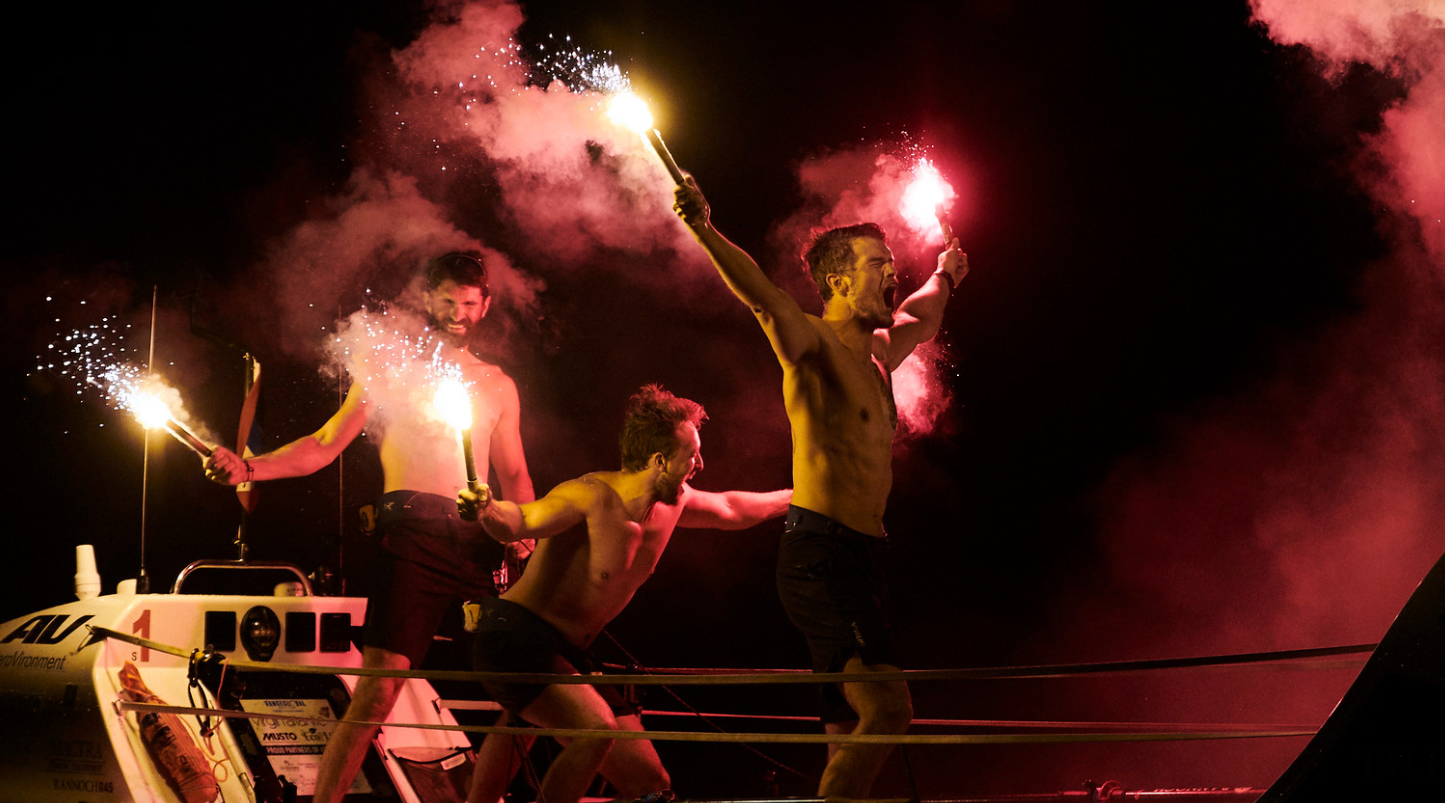 Q: You will have no-doubt inspired a lot of our students to take on their own sporting challenge. What advice would you give any of them wishing to take on something so challenging?
Q: You will have no-doubt inspired a lot of our students to take on their own sporting challenge. What advice would you give any of them wishing to take on something so challenging?
A: Have a good plan and get the support of friends and family and go for it. You only live once!
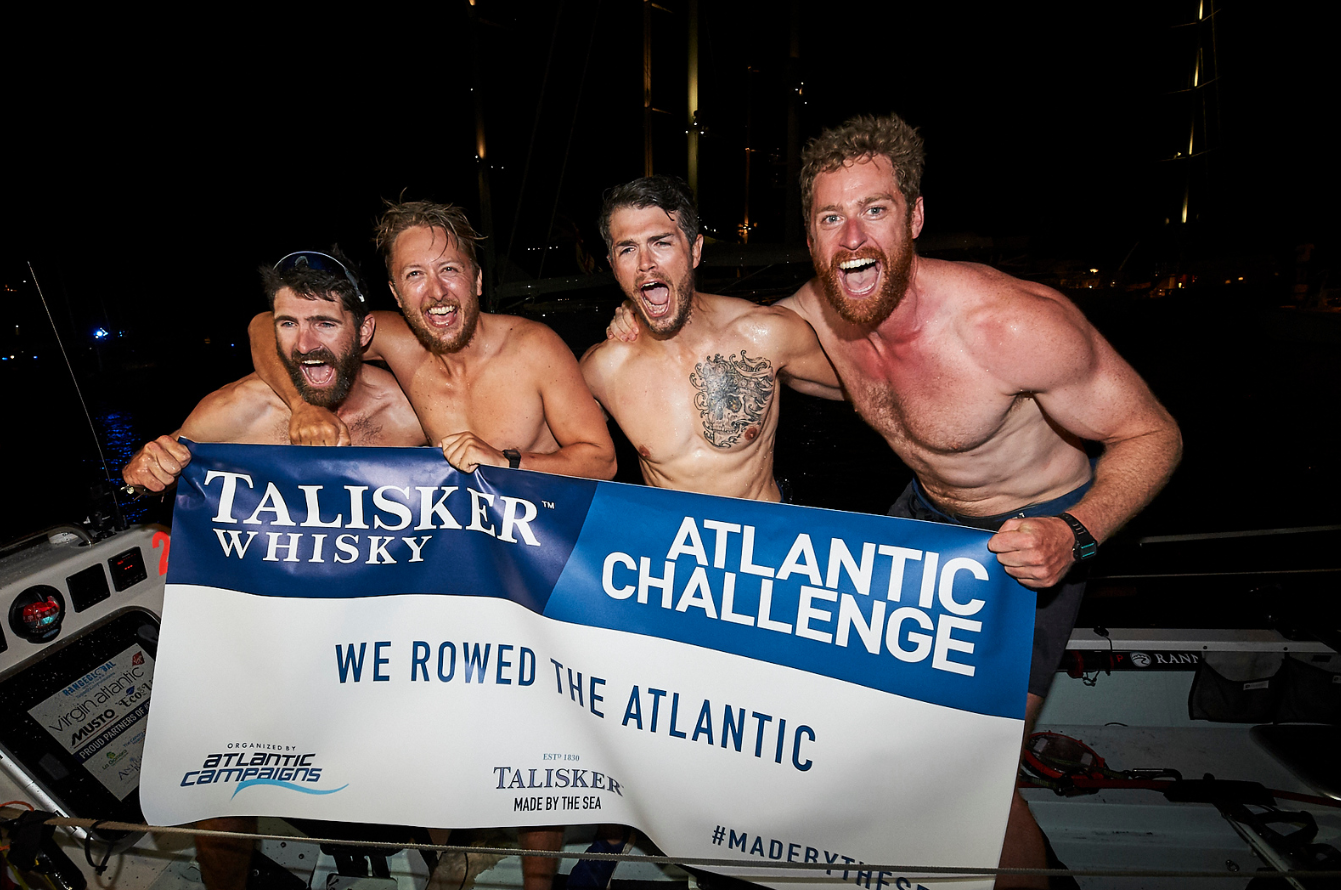 Q: Following the win of the world’s toughest row, what are you up to now?
Q: Following the win of the world’s toughest row, what are you up to now?
A: We are working with companies and large corporates by delivering presentations and seminars on the importance of building the right team dynamics to succeed. These presentations also touch upon developing emotional intelligence based on lessons we learnt throughout the process of preparing for and winning the Atlantic row. We have found we can add real value to companies and the feedback so far is great.
To find out more about what the team can offer, you can contact them directly at fortitudeiv@gmail.com. You can also keep track on them by following them on Instagram.
